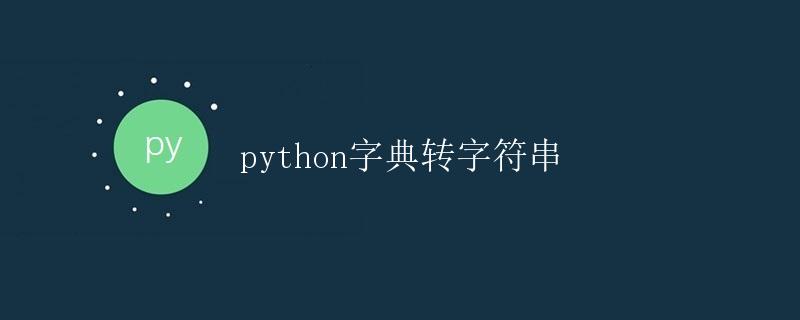Python字典转字符串

在Python中,字典是一种非常常用的数据结构,它可以存储大量的键值对数据。有时候我们需要将字典转换为字符串的形式,以便在网络传输、文件存储等场景中使用。本文将详细讨论如何将Python字典转换为字符串,并且给出一些示例代码来演示实际操作。
字典转字符串方法
1. 使用str()函数
最简单的方法是使用Python内置的str()函数,将字典对象直接转换为字符串,例如:
my_dict = {'name': 'Alice', 'age': 30, 'city': 'New York'}
dict_str = str(my_dict)
print(dict_str)
print(type(dict_str))
运行结果为:
{'name': 'Alice', 'age': 30, 'city': 'New York'}
<class 'str'>
2. 使用json模块
另一种常用的方法是使用json模块,该方法还可以实现字典与JSON字符串之间的相互转换。示例如下:
import json
my_dict = {'name': 'Alice', 'age': 30, 'city': 'New York'}
dict_str = json.dumps(my_dict)
print(dict_str)
print(type(dict_str))
运行结果为:
{"name": "Alice", "age": 30, "city": "New York"}
<class 'str'>
3. 自定义方法
如果需要按照一定格式将字典转换为字符串,也可以自定义方法来实现,例如将字典中的键值对逐行输出:
def dict_to_str(my_dict):
return '\n'.join([f'{k}: {v}' for k, v in my_dict.items()])
my_dict = {'name': 'Alice', 'age': 30, 'city': 'New York'}
dict_str = dict_to_str(my_dict)
print(dict_str)
print(type(dict_str))
运行结果为:
name: Alice
age: 30
city: New York
<class 'str'>
小结
本文介绍了三种常用的方法将Python字典转换为字符串,分别是使用str()函数、json模块和自定义方法。不同的方法适用于不同的场景,选择合适的方法可以提高代码的效率和可读性。
 极客教程
极客教程